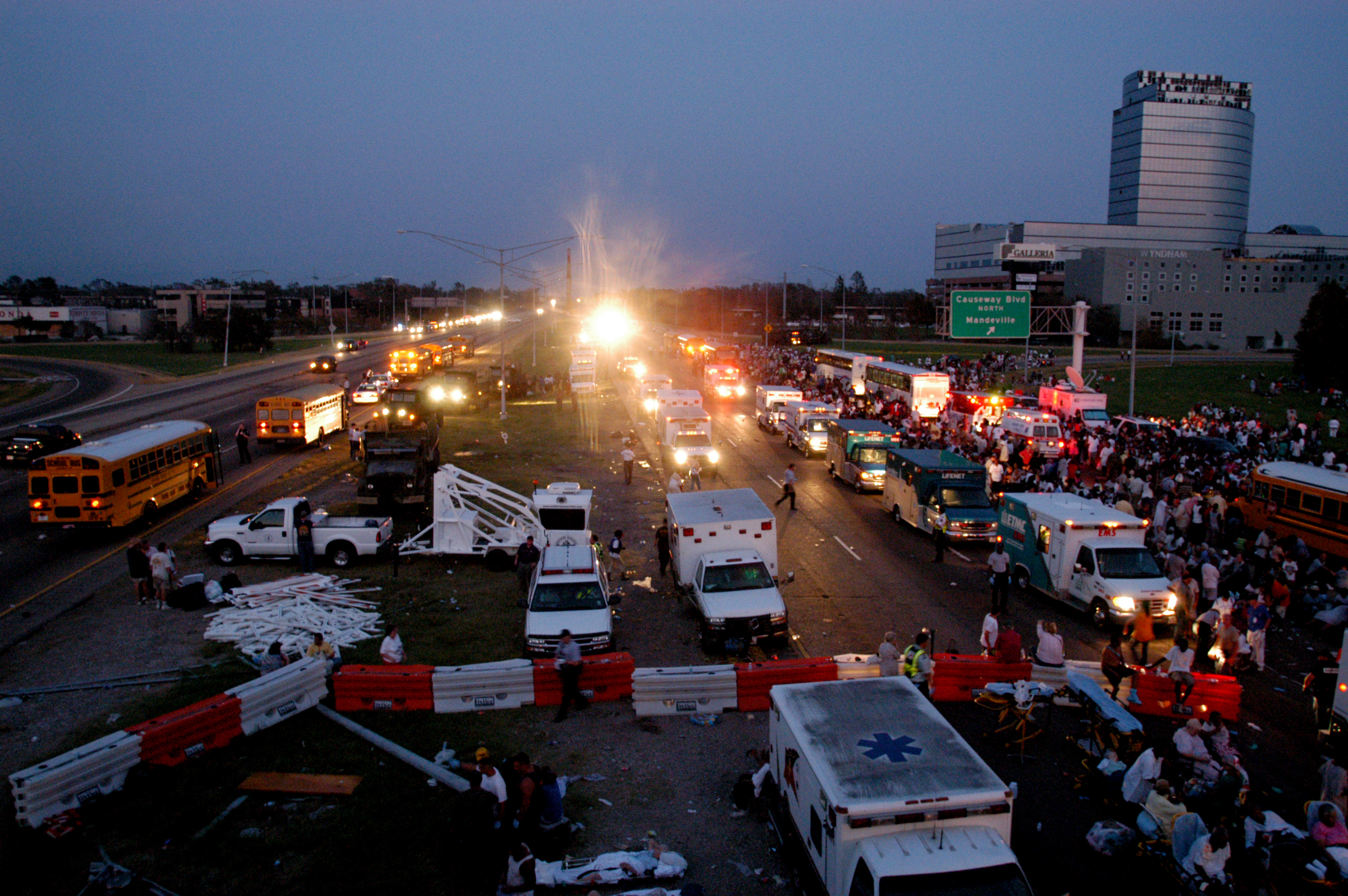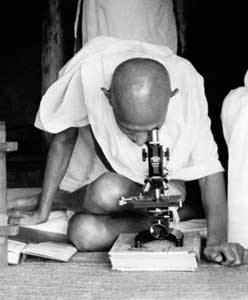"Found Down": HMS/HSDM Commencement speech

"Each of these stories become more subtle and often more difficult versions of the same question: when we see suffering, do we look away, or go towards it?"
Photo: rescue staging area after Hurricane Katrina.
...More to write about graduation soon (it was yesterday, June 7). First, here's the speech I gave at the commencement ceremony of the Harvard Medical School and Harvard School of Dental Medicine.
I’m going to start with a story. It starts when a man falls down on the sidewalk. He might be drunk, or he might not. He might be unconscious because he fell, or he might have fallen because he became unconscious. Hopefully sooner than later, someone realizes that he has fallen down.
The call to 911 comes from the first person to realize this and to care. Next comes the ambulance crew, and even the cars that get out of the way when the siren goes on. As the story continues, there are triage nurses and doctors, x-ray technicians and respiratory therapists. Maybe the man found down has a strange rash, goes to cardiac cath, or needs a CT scan; maybe he has blood in one of his eyes, or a shattered bone. There will be more to the story, but this is its essence: a person falls, and in small and large ways, a huge network of people begins to pick him up again.
Today, we step into a new role within this network. But we have already been part of this group of people: those who go to the man found down, and try to help him up.
We can’t be too romantic about this story. Almost as soon as the man’s story begins, promises and demands of money start moving through the wires underneath the sidewalk onto which he fell, perhaps even before he has been picked up off of it. But today is not about that part of the story. Today is about what we do because of who we are, and not just who we are paid to be.
Each of us will encounter different versions of this story in our work. A child is frightened of her father. A veteran is overwhelmed with anxiety inside an MRI machine. And a family is just down the hall, waiting to hear the news of an operation, and someone must tell them that the operation went badly. Hundreds and maybe thousands of stories like this are unfolding at this moment, right outside this tent, in the hospital and clinic buildings all around us. And each of these stories become more subtle and often more difficult versions of the same question: when we see suffering, do we look away, or go towards it?
We’ll have to answer this question day after day. I once heard an ICU nurse in an urban hospital say, “All of our patients have the same chief complaint: found down.” July’s novelty and excitement will be followed by February’s bleak repetition. Just about any hospital has many people found down for reasons that are easy to diagnose, but can seem impossible to solve.
To respond to this sometimes relentless suffering, we’ll have to push back against huge impersonal systems, even when those systems beat us back again and again. And we’ll sometimes have to forgive terrible human frailty even as that frailty pushes us to our limits of forgiveness. And so nearly all of us will succumb to frustration and even cynicism from time to time. This is nothing to be ashamed of, as long as we don’t wallow in it, and as long as we don’t mistake bitterness for truth. We are graduating from medical school, not saint school.
Nonetheless, we can hope to meet the basic moral standard of looking towards suffering instead of away from it. In clinics and hospitals, in our personal lives, and in research and policy, we’ll constantly face this moral challenge. Even the best of us will often fail it. But that should not stop us from continuing to try.
When we do reach this standard, we have one final important task: to avoid congratulating ourselves too vigorously for our own forms of benevolence. Sentimentality about our special virtue as doctors can be as dangerous as cynicism, because it causes us to forget that we are joining something much larger.
Our medical training means that we will bring our expertise, our intellectual curiosity, our readiness to work hard. We can be justifiably proud of ourselves for what we have already accomplished, and we know for sure that the people in the audience today are already proud of us.
But today we also join others—paramedics, nurses, social workers—and dentists—and many others who spend their lives responding to suffering. In the few blocks around us, there are thousands of people like this. And even more importantly, there are many other people who are not healthcare workers, but just caring people who also see suffering and find ways to respond. I came to medical school because of people like this—people who responded to the crisis of the AIDS epidemic in San Francisco, people who taught me about courage in the face of disaster.
In small or large ways, most of us have probably come to sit here today partly because of people like this, people who taught us how to behave in the face of suffering: teachers, friends, family. They have usually taught us by example, often because they cared for us when we were suffering. Some of those people are here today. They have seen us fall; in one way or another, they have found us down and helped us up, sometimes many times. As we graduate, we honor their acts of faith in us. Today we mark a moment in which their gifts to us have come to fruition. Now, we will join them in helping those who are found down.





3 comments:
Beautiful. Congratulations on entering this new phase of your education. My brother-in-law swears that his residency was much more like "Scrubs" than "ER" but he's sort of a dork.
One of the things I'm trying to do in my recovery is to look for opportunities to be of service in any situation I'm in. I'm so please to see that community and service are in the front of your mind as you begin a new chapter.
All best wishes,
Chris M.
Thanks Chris. I appreciate that. (Also--when your tomatoes ripen enough for eating, will you take another picture on your blog? I want a tomato link.) best, joe
Of course!
Post a Comment